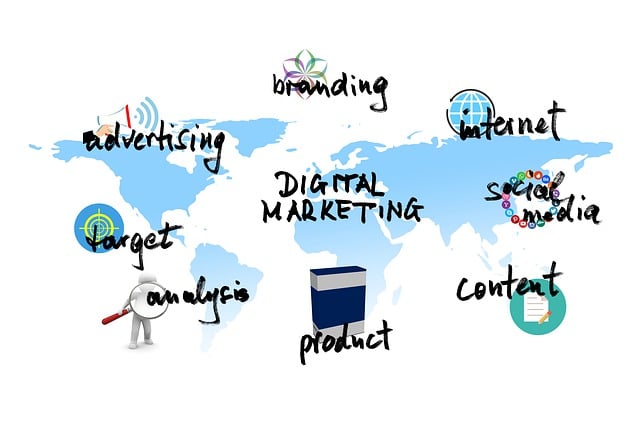AI-powered systems for auto shop marketing are transforming traditional advertising and customer engagement by leveraging machine learning algorithms for personalized campaigns, precise segmentation, and enhanced ROI. These tools, including NLP chatbots and predictive analytics, offer 24/7 support, streamline operations, optimize pricing, and improve vehicle maintenance. A strategic approach to integration involves assessment, tool selection, pilot testing, gradual expansion, staff training, and continuous evaluation. Auto shops adopting these innovations are seeing increased efficiency, customer satisfaction, and productivity, such as a 20% rise in daily appointments without additional staffing.
In today’s digital age, automotive shops must innovate to thrive. AI innovation strategies aren’t just a trend; they’re a necessity. This article explores how AI-powered systems can revolutionize auto shop marketing, offering tailored services and enhancing customer experiences. We’ll guide you through a step-by-step implementation process and present compelling case studies showcasing successful AI integrations. Discover the power of AI in transforming your business and gaining a competitive edge in the market.
- Harnessing AI for Auto Shop Marketing: Strategies and Benefits
- Implementing AI-Powered Systems: A Step-by-Step Guide
- Case Studies: Successful AI Integrations in Automotive Shops
Harnessing AI for Auto Shop Marketing: Strategies and Benefits

In today’s digital age, AI-powered systems for auto shop marketing offer unprecedented opportunities to transform traditional advertising and customer engagement strategies. By leveraging machine learning algorithms, automotive businesses can gain valuable insights into consumer behavior, enabling them to create highly personalized marketing campaigns that resonate with their target audience. AI can analyze vast amounts of data, such as customer demographics, service history, and online interactions, to segment customers and deliver tailored messages across various channels, including email, SMS, and social media.
This approach not only enhances the overall customer experience but also improves marketing ROI. AI-driven systems can optimize pricing strategies, predict maintenance needs, and offer proactive services based on vehicle health data, creating a competitive edge for auto shops. Additionally, natural language processing (NLP) chatbots can provide instant customer support, answer queries, and guide potential clients through the service process, ensuring 24/7 availability and improved customer satisfaction. These AI innovations streamline marketing efforts, making auto shop promotions more effective, efficient, and adaptable to the dynamic automotive industry.
Implementing AI-Powered Systems: A Step-by-Step Guide

Implementing AI-Powered Systems: A Step-by-Step Guide
1. Assess Current Processes: Begin by evaluating your auto shop’s current operations. Identify pain points and areas where AI can bring significant improvements, such as streamlining inventory management or enhancing customer service through chatbots.
2. Choose the Right AI Tools: Select AI-powered systems tailored to your specific needs. This could include predictive analytics for maintenance scheduling, natural language processing for customer interaction, or computer vision for diagnostic imaging. Ensure these tools integrate seamlessly with your existing shop management software.
3. Pilot Testing and Optimization: Implement the selected AI tools on a small scale first. Monitor their performance closely, gathering feedback from staff and customers alike. Adjust settings and fine-tune algorithms as needed to maximize efficiency and accuracy.
4. Expand Implementation Gradually: Once satisfied with the pilot results, gradually roll out the AI-powered systems across your entire operation. This strategic approach allows for a controlled transition, ensuring that any issues are identified and resolved before full adoption.
5. Train Staff and Foster Adoption: Provide comprehensive training to ensure your team understands how to use the new AI systems effectively. Encourage open communication and address concerns to foster a culture of acceptance and productivity.
6. Continuously Evaluate and Update: Regularly assess the impact of AI on your shop’s performance, customer satisfaction, and bottom line. Stay updated with advancements in AI technology and incorporate relevant upgrades to maintain competitive edge.
Case Studies: Successful AI Integrations in Automotive Shops

In recent years, automotive shops have embraced AI-powered systems for auto shop marketing and operations, leading to significant improvements in efficiency and customer satisfaction. Case studies from forward-thinking establishments show that integrating artificial intelligence into daily workflows can revolutionize how businesses manage their services. For instance, some shops have successfully implemented AI chatbots on their websites to handle initial customer inquiries, providing quick responses around the clock. These digital assistants can gather information about vehicle issues, schedule appointments, and even offer preliminary diagnostics, enhancing the overall customer experience.
Additionally, predictive maintenance powered by AI has been a game-changer for many automotive shops. By analyzing vast amounts of data from vehicles’ sensors and historical service records, these systems can predict when maintenance or repairs are needed. This proactive approach reduces unexpected breakdowns, cuts down on labor costs, and improves shop productivity. For example, one case study highlights an independent auto repair shop that utilized AI to optimize their scheduling system, resulting in a 20% increase in daily appointments without hiring additional staff.
AI innovation is transforming the automotive industry, and adopting AI-powered systems for auto shop marketing isn’t just a trend—it’s a necessity. By implementing these strategies, shops can enhance customer engagement, streamline operations, and ultimately stay competitive in today’s digital era. From personalized marketing to efficient data analysis, the benefits are clear. As seen in successful case studies, embracing AI can lead to increased profitability and improved customer satisfaction. It’s time for automotive shops to dive into this revolution and harness the power of AI-powered systems to drive their success forward.
